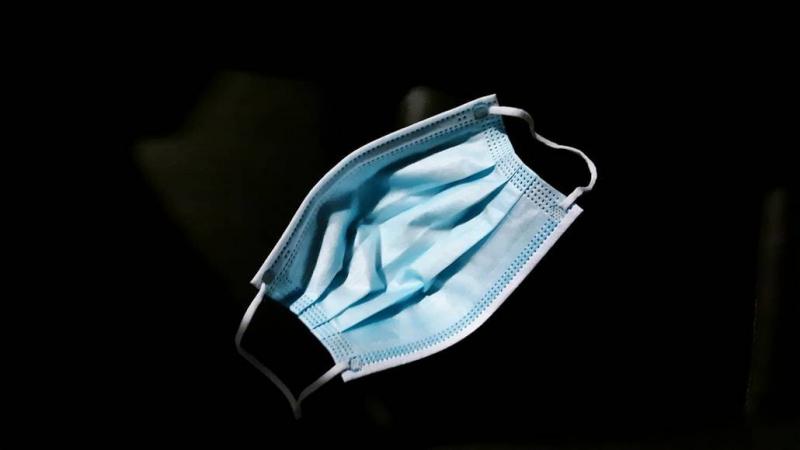The Omicron variant causing COVID-19 is rapidly spreading across the globe, forcing governments to revise their national strategies for handling the pandemic. Omicron has proven to be more contagious than other strains, especially as the number of people refusing vaccinations rises, thus contributing to the spread of the disease. While the number of infections has increased, the number of cases requiring hospitalization has been lower. There is evidence indicating that people who have received two vaccine doses or a booster shot are less likely to be hospitalized or die if infected with Omicron.
This has led many countries, including the United States and the United Kingdom, to shorten the self-isolation period to five days to alleviate the challenges faced by individuals required to stay home and not attend work or school. However, the World Health Organization has warned countries against becoming complacent with Omicron, reminding that this variant still poses a "deadly" risk, especially for the unvaccinated.
What underlies the new guidelines, and what do we know about how the new variant spreads? Although studies on Omicron are still limited, research suggests that it may not only be less severe than previous strains but also has a shorter incubation period. The incubation period is the time between catching the virus and the onset of symptoms. In prior strains of coronavirus, symptoms typically appeared within five to six days after exposure. For example, the Delta variant had a symptom onset estimate of four days. Current understanding of Omicron suggests that symptoms may appear within 2 to 3 days of infection.
How long is a person infected with the virus contagious? Scientists know that individuals infected with the coronavirus tend to be most contagious early during the infection. However, for Omicron, it is believed that the virus can be transmitted one to two days before symptoms appear and two to three days after they emerge. Soriano states, "We believe the virus is contagious for only five days. In other words, the ability to infect others extends from three to five days after a positive test result, which typically appears on the second day of infection." It appears that the Omicron variant remains in the body for about seven days, according to him. This means that after approximately seven days from the onset of symptoms, most people are unlikely to transmit the virus if they show no symptoms. Soriano adds, "But this is medicine, not mathematics, so there needs to be time and a wider range allocated."
"Some individuals may have a slightly shorter duration, around three to four days, while others may experience around seven days. But the definite thing is that Omicron is rapidly contagious compared to previous variants." The best way to ensure that you are no longer infectious is to take an antigen test to determine whether a person is still capable of spreading the virus. "These tests are low-cost and can indicate whether someone is still contagious."
When can I meet someone who has symptoms? The Centers for Disease Control and Prevention (CDC) has published guidelines allowing individuals who test positive for COVID-19 to interact with others after five days of isolation, but under certain conditions. Here’s what to do if your test result is positive, according to the CDC:
- If you are symptomatic with COVID-19, isolate yourself for at least 5 days. To calculate the 5-day isolation period, day 0 is the first day symptoms appear.
- If your symptoms are no longer present, or if your symptoms have improved after five days, you can end isolation and leave your home.
- Continue to wear a mask when around others for an additional five days.
- Avoid travel until you have completed 10 full days after the first day your symptoms appeared, and if travel is necessary on days 6 to 10, wear a tight-fitting mask when near others throughout the journey.
- If you have a fever, remain isolated at home until your body temperature returns to normal.
How long will I be contagious if I have no symptoms? Many people infected with COVID may not exhibit any symptoms throughout their illness. They should expect their contagious period to be similar to that of someone symptomatic, according to Soriano. He stated to the BBC, "Much remains unknown about asymptomatic infections. However, it seems the infectious duration is similar to that of symptomatic individuals." He added, "Studies regarding asymptomatic COVID-19 infections in children typically show that their duration of carrying the virus mirrors that of symptomatic adults."
Can an asymptomatic individual transmit the virus to others? Studies have shown that individuals infected with COVID but showing no symptoms can still spread the virus to others. They may be more likely to transmit the infection because they are unaware of their status, leading them not to isolate or take precautions to prevent spreading the virus. Research published in JAMA Network Open suggests that about one in four infections result from transmission by asymptomatic infected individuals. It is believed this occurs with the Omicron variant at higher rates than previous strains. Authorities recommend the use of face masks, especially in enclosed spaces, to help mitigate the risk of individuals inadvertently spreading the virus.




